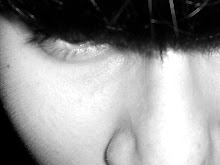This is the first review of the Books of Exile series, books I read during my mini-make-belief exile in Guwahati. The reviews're in no particular order and I hope the publishers/authors of the books notice my reviews and send me gifts for pimping their books for free.
The Three Faces of Eve - Corbett H. Thigpen
and Hervey M. Cleckley
 |
| Didn't he've a fine handwriting? Was definitely NOT a doctor. |
This was the first book on psychology that I ever read and I remember it was in November 2011 when I picked it up from a second-hand bookshop in Pan Bazaar – my most favourite area in any city, i.e. after Police Bazaar in Shillong and M. G. Road in Bangalore. The book belonged to a H. Das/Dass/Dhas of Dibrugarh who had bought the book for Rs. 3.00 (good old cheap days, I bought the same copy almost 40 years after for Rs. 30). There’s also a seal of the Dibrugarh Library, so it came into the library’s possession too some time before coming to the second hand bookshop’s in Guwahati. The amount of history one second-hand book can’ve! Also, this book had been one of those few Out-Of-My-Comfort-Zone books for me. Definitely Out-Of-My-Comfort-Zone.
 |
| How did it travel all the way from Dibrugarh Library to a Guwahati second-hand bookshop? |
The Three Faces of Eve is the real life story of Chris Costner Sizemore, a woman from 50s South Carolina, USA, who was diagnosed with Multiple Personality Disorder, sometime now known as Dissociative Identity Disorder (hail Wikipedia). Her real identity was kept a secret from the public eye, from the book’s first publication in 1957 till 1975 and since my copy of the book is from ’61 (vintage!), she’s referred to as Eve White here, while the two other inhabitants of her mind and body’re called Eve Black and Jane. Eve White is a timid, hard working woman whose most defining role in her life is that of being a mother to her daughter, Bonnie. Her marriage is on the rocks and she worries for her daughter. After complaining of severe headaches and blackouts, she visits a psychiatrist, before whom Eve Black emerges and for the first time let’s her existence known, even though she claims to be existing alongside Eve White since childhood, without ever coming under anyone’s notice. Eve Black is the very anti-thesis of Eve White, a woman in sharp contrast to the later in her confident, flirtatious and frivolous nature. The psychiatrists believe her to be the manifestations of Eve White’s repressed feelings. Both the personalities’re thought to be imbalanced in their own ways, one overtly serious and maternal with her feelings, with no real love left for her husband and the other too frivolous than necessary, one who flirts with unknown and potentially dangerous men with subtle hints of ‘something more’, only to turn them down at the end. While Eve White has no recollection of what Eve Black does when she comes into dominance, she has to clear the many tight situations her twin leaves her in. Eve Black does not think of Eve White’s husband and daughter as her own and hates the restriction Eve White’s conventional life puts on her. After a few months, up to when Eve White has separated from her husband and is working and living independently, the third personality appears. She is Jane, the most well rounded personality of the three. Unlike the other two, she’s ‘born’ just when she appears before the psychiatrist for the first time. While Eve White can’t read Eve Black’s thoughts and access her memories, in turn Eve Black can’t do the same in Jane’s case, while Jane gets to know what the other two’re thinking. What later follows is how the three very different personalities cope with their very unique situation and ultimately who rises triumphant over the complete control of the mind and the body.
Sometimes, facts’re indeed scarier than
fiction and this true story is one such example. The book reads like a
technical psychological manual at times, but it’s the personal story of the
protagonists which keeps the interest going for the layman. Joanne Woodward won
her first Oscar for portraying the role of the Eves and Jane in the film adaption of the book, the first for an actress playing three roles in one
movie. What was absolutely funny in the book though was how the authors, who
were renowned psychiatrists themselves, sarcastically write off Freud and his
interpretation of Dreams, vis-a-vis the dreams Jane used to’ve. Among the gems
that Freud’s school of thinking gave birth to is the belief that every little
girl of under 5 thinks of herself as a castrated boy who’s forever thinking of sexual intercourse with
her father and how snakes in one’s dreams represent male genitals (that kind
of reduces the creepiness of a few of the creepy nightmares yours truly had to dreams
of pure comedy) and father issues, all of which the book prawns at the end. Not
a light read at all and DON’T READ THIS IF YOU’RE UNDER STRESS AND LOOKING FOR
A BOOK TO LIFT YOUR SPIRITS TO MULTICOLOURED RAINBOWS. It just won’t happen.
Other than that, a good introduction to psycho-talk literature.
Saturday, 10 March 2012
Labels:
Books,
Books of Exile,
Living In Guwahati
















nice work! :)
I loved the third photo.
This also reminds me of "tell me your dreams" by Sheldon!